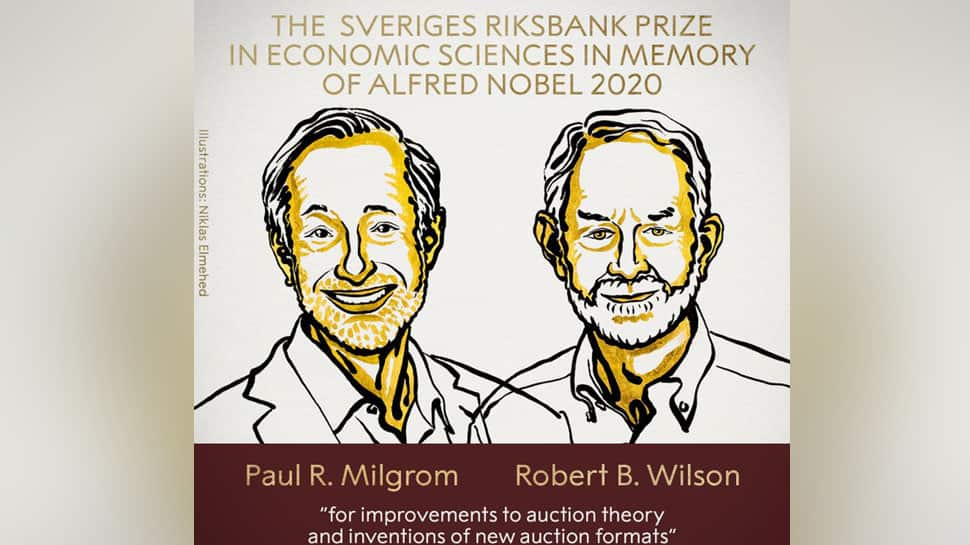The 2020 Sveriges Riksbank Prize in Economic Sciences in Memory of Alfred Nobel was awarded on Monday to Paul R Milgrom and Robert B Wilson “for improvements to auction theory and inventions of new auction formats.” Both of them are from Stanford University, US.
The prize amount is 10 million Swedish kronor and will be shared equally between the laureates.
This year’s Laureates, Paul Milgrom and Robert Wilson, have studied how auctions work. They have also used their insights to design new auction formats for goods and services that are difficult to sell in a traditional way, such as radio frequencies. Their discoveries have benefitted sellers, buyers and taxpayers around the world.
BREAKING NEWS:
The 2020 Sveriges Riksbank Prize in Economic Sciences in Memory of Alfred Nobel has been awarded to Paul R. Milgrom and Robert B. Wilson “for improvements to auction theory and inventions of new auction formats.”#NobelPrize pic.twitter.com/tBAblj1xf8— The Nobel Prize (@NobelPrize) October 12, 2020
People have always sold things to the highest bidder or bought them from whoever makes the cheapest offer. Nowadays, objects worth astronomical sums of money change hands every day in auctions, not only household objects, art and antiquities, but also securities, minerals and energy. Public procurements can also be conducted as auctions.
Using auction theory, researchers try to understand the outcomes of different rules for bidding and final prices, the auction format. The analysis is difficult, because bidders behave strategically, based on the available information. They take into consideration both what they know themselves and what they believe other bidders to know.
Robert Wilson developed the theory for auctions of objects with a common value – a value which is uncertain beforehand but, in the end, is the same for everyone. Examples include the future value of radio frequencies or the volume of minerals in a particular area. Wilson showed why rational bidders tend to place bids below their own best estimate of the common value: they are worried about the winner’s curse – that is, about paying too much and losing out.
Paul Milgrom formulated a more general theory of auctions that not only allows common values but also private values that vary from bidder to bidder. He analysed the bidding strategies in a number of well-known auction formats, demonstrating that a format will give the seller higher expected revenue when bidders learn more about each other’s estimated values during bidding.
Over time, societies have allocated ever more complex objects among users, such as landing slots and radio frequencies. In response, Milgrom and Wilson invented new formats for auctioning off many interrelated objects simultaneously, on behalf of a seller motivated by broad societal benefit rather than maximal revenue. In 1994, the US authorities first used one of their auction formats to sell radio frequencies to telecom operators. Since then, many other countries have followed suit.
“This year’s Laureates in Economic Sciences started out with a fundamental theory and later used their results in practical applications, which have spread globally. Their discoveries are of great benefit to society,” says Peter Fredriksson, chair of the Prize Committee.
Paul R Milgrom was born 1948 in Detroit, USA. He is a PhD 1979 from Stanford University, Stanford, USA. Shirley and Leonard Ely Jr. Professor of Humanities and Sciences, Stanford University, USA.
Robert B Wilson was born 1937 in Geneva, USA. He did his DBA 1963 from Harvard University, Cambridge, USA. Adams Distinguished Professor of Management, Emeritus, Stanford University, USA.
















